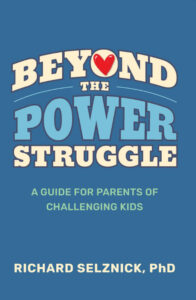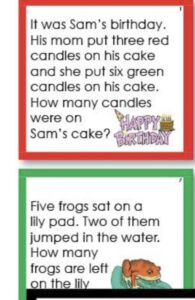“Rubbing My Head” (#Dyslexia #ADHD #Whatever)
 This blog can occasionally serve as a bit of a confessional, providing me with a forum to voice some concerns regarding the issues that emerge while working with struggling children and their parents.
This blog can occasionally serve as a bit of a confessional, providing me with a forum to voice some concerns regarding the issues that emerge while working with struggling children and their parents.
So, with that in mind here’s a confession.
Sometimes I honestly don’t know when a child’s struggling, particularly in the four to seven-year range (Pk-1st) is related primarily to immaturity (i.e., they are not ready and need more time) or whether their struggling represents a legitimate disorder/disability.
(As I write this, I hear the chorus in the back of my mind calling out.)
“Well, Mr. Big Shot. You’re the doctor. That’s why we are coming in to see you – to tell us what it is. What do you mean you are not sure if it’s immaturity or a disorder? Stop rubbing your head! What’s the matter with you???”
I try talking back to the chorus.
I tell them things like, “It’s rarely clear cut. There is usually a ‘pie chart or ‘soup pot’ of variables interacting.’”
At that point the chorus gets louder. They are almost screaming, “‘A soup pot of variables!!!!!’ What does that mean??? Does she have it or not? Does she have dyslexia??? And what about ADHD? She pays attention to nothing!!!! Isn’t that ADHD? And she seems awfully anxious. Come on, man. Get out of your soup pot.”
Relentlessly badgered by the chorus, I think of Marjorie, age 7, a child I recently evaluated who doesn’t read very well or stay on task without a lot of reminders.
Marjorie’s teacher vaguely spoke to the mom about her not paying attention very well in school, with the implied suggestion that she might have ADHD, always with the caveat that “We are not doctors. We don’t diagnose.”
After running Marjorie through a bunch of tests, I had one overall impression.
Marjorie struck me as immature.
“Immature????,” the chorus cries out. “Are you kidding me?”
“Yes,” I push back against the chorus. I tell them that Marjorie seemed more like a five-year old-rather than seven in her manner and way of interacting – that her preoccupations came across as a bit babyish.
The problem with that there is no test to quantify “babyish,” such as a “Maturity-Immaturity Scale.”
It’s the same with the disorders, like dyslexia or ADHD. Even though there are more objective tests involved in the assessment, there is no X-Ray or blood test to say, “Yes, has it” or “No, doesn’t have it.” It’s still a weighing of variables that tilt the scales one way or the other.
Takeaway Point
I am sticking with the view that Marjorie needs time and perhaps some tutoring to help her mature and improve her skills. We need to track and monitor her closely to see how she responds.
“Back down, chorus. I’m going back to rubbing my head.”
To receive future blog posts, register your email: https://shutdownlearner.com.
To Contact Dr. Richard Selznick for advice, consultation or other information, email: shutdownlearner1@gmail.com.

 Copyright, Richard Selznick, Ph.D. 2023, www.shutdownlearner.com.
Copyright, Richard Selznick, Ph.D. 2023, www.shutdownlearner.com.

 Even though I’ve probably evaluated a few thousand dyslexic kids in my career, it still takes my breath away when I meet those who are on the more significant to severe end of the spectrum.
Even though I’ve probably evaluated a few thousand dyslexic kids in my career, it still takes my breath away when I meet those who are on the more significant to severe end of the spectrum. “So, what if I have dyslexia?”
“So, what if I have dyslexia?” A number of years ago, I had the good fortune to take part on a panel during a symposium on dyslexia sponsored by the grassroots parenting group, Decoding Dyslexia: NJ. Dr. Sally Shaywitz, the author of “Overcoming Dyslexia” was the keynote speaker. While talking about assessing dyslexia, Dr. Shaywitz said something that really struck me, as it reminded of something I had been saying for years.
A number of years ago, I had the good fortune to take part on a panel during a symposium on dyslexia sponsored by the grassroots parenting group, Decoding Dyslexia: NJ. Dr. Sally Shaywitz, the author of “Overcoming Dyslexia” was the keynote speaker. While talking about assessing dyslexia, Dr. Shaywitz said something that really struck me, as it reminded of something I had been saying for years. Parents commonly come in with common questions such as, “Does their child have ADHD?” or “Is my child dyslexic?”
Parents commonly come in with common questions such as, “Does their child have ADHD?” or “Is my child dyslexic?” (***This blog is a revision of an earlier post.)
(***This blog is a revision of an earlier post.) Those of you following this blog for some time know there are some recurring themes in these posts (that mostly irritate me).
Those of you following this blog for some time know there are some recurring themes in these posts (that mostly irritate me). Not sure when the reverence for word problems emerged, but it seems that children are almost exclusively taught math through word problems. I believe it’s linked to the theory that math should always be enhancing “higher order thinking.”
Not sure when the reverence for word problems emerged, but it seems that children are almost exclusively taught math through word problems. I believe it’s linked to the theory that math should always be enhancing “higher order thinking.” Largely supported by the medical model, when parents have their child assessed they are often focused on “the diagnosis.” Such a model embodies a, “Yes, they have it,” or “No, they don’t have it,” (whatever “it” is) perspective.
Largely supported by the medical model, when parents have their child assessed they are often focused on “the diagnosis.” Such a model embodies a, “Yes, they have it,” or “No, they don’t have it,” (whatever “it” is) perspective.